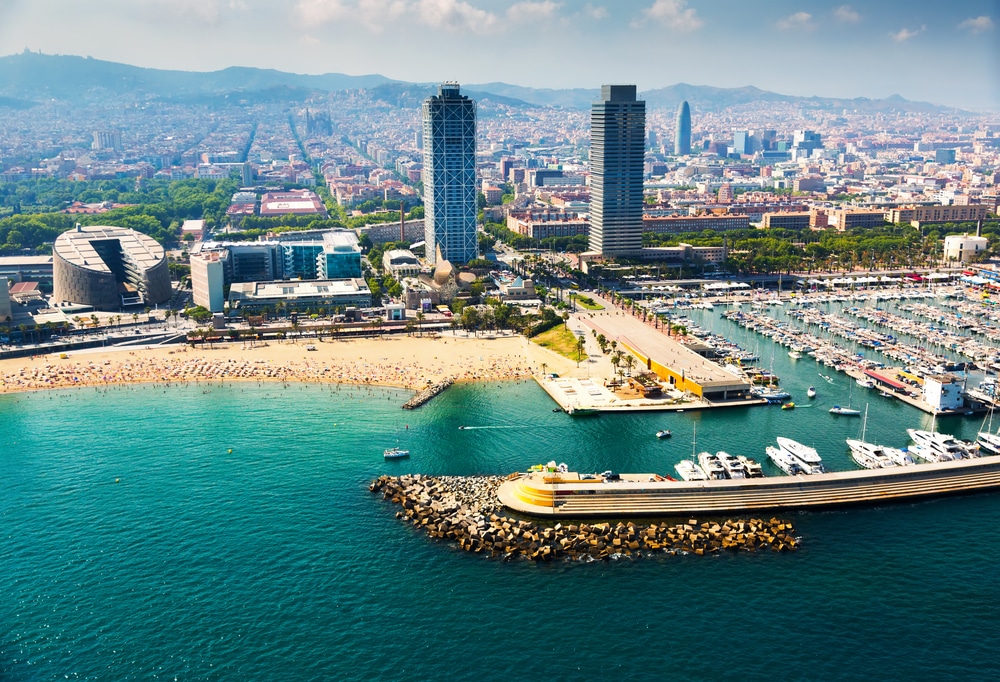
Barcelona’s cannabis clubs in limbo after an abrupt court ruling
Part of Barcelona’s charming appeal is the concentration of hundreds of cannabis clubs – known locally as Asociaciónes – but that could end with the city’s recent setback. The Supreme Court dealt another blow to the loophole in the law that allowed around 200 local clubs to continue operating.
They’re officially defined as private member clubs, but the associations tend to rely on luring tourists in, with a membership fee of around € 10 ($ 11.83) – and it usually pays in for the first purchase anyway.
In 2014, the Generalitat de Catalunya Health Authority proposed tough new measures to regulate clubs. The Generalitat is the regional government of Catalonia, which has extensive powers within the framework of the decentralized system of Spain, but cannot override Spanish national law. And Spanish law allows private cannabis use.
Cannabis clubs suffered a setback in 2017 when the Supreme Court overruled Catalan local law. That law once claimed that “the private use of cannabis by adults … is part of the exercise of the fundamental right to free personal development and freedom of conscience”.
However, the clubs continued to operate under city statutes regulating the sale of cannabis. But that too was overridden by judges and the city officials were deprived of their authority.
“The majority of associations believe that sooner or later they will be forced to close,” Eric Asensio, spokesman for the Federation of Catalan Cannabis Associations, told The Guardian. “Again the judiciary is attacking the associations without taking into account the reality of Barcelona, a city that has coexisted with these institutions for more than 30 years.”
The city, which supports the associations’ gray area status, has made it clear to them that the latest ruling bans the “sale, use or promotion” of cannabis – a major blow to the future of the clubs as they know them. City officials said they would soon be inspecting the clubs, “starting with those with the greatest negative impact that target tourists and massive sales.”
Asensio added that if the city complied with regulations, crime would actually be reduced because it would prevent gangs and mafia members from entering the system. It is unclear whether the latest ruling will stand and whether the clubs still have an arsenal to defend their industry.
Are mafia and gang grow operations in cannabis clubs to blame?
Vice News ran an article on the rise in illegal activity in Barcelona, Europe’s “cannabis capital”. Journalists report that when tourism collapsed, mafia and gang members quickly took control of the cannabis trade and often worked with some clubs.
The associations initially worked as private clubs where members could buy and smoke cannabis on the premises. But recently, many have deviated from this model to instead become outlets for the huge amounts of cannabis grown in Catalonia – under the control of Eastern European and other Mafia organizations.
In the past year, police disbanded 34 cannabis-related criminal organizations and destroyed 319 plantations. Spain is remarkably tolerant of cannabis crime and criminals rarely stay longer than two years in prison for any type of cannabis crime.
With the collapse of tourism in Barcelona due to COVID-19, the cannabis business is one of the few that is thriving in Catalonia, but beyond the poor lighting and the relaxed atmosphere of the associations, darker forces are at play. According to an internal report by the Mossos d’Esquadra, the Catalan police force, “Catalonia is the epicenter of the illegal marijuana market in Europe” and has become a net exporter of cannabis to other European countries.
A Chinese gang known as the Bang of Fujian also filled the void, using clubs in Barcelona and other Spanish cities to sell illegally grown cannabis. Europol flooded 29 warehouses in Barcelona, effectively disrupting the gang’s operations.
The once innocent tourism cannabis club industry in Barcelona could get worse if the Supreme Court continues to shut down city regulations that make the city safer.

Post a comment: